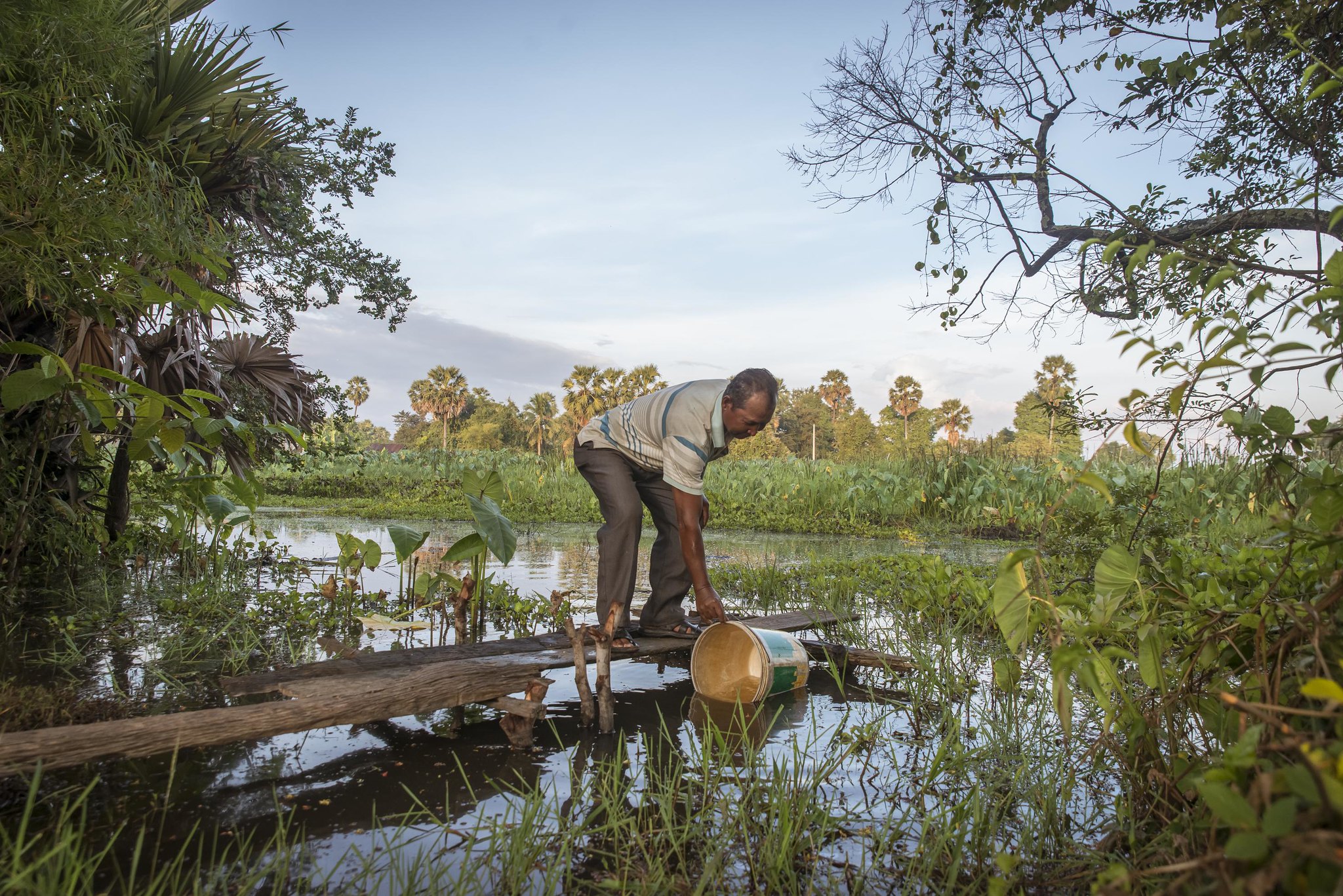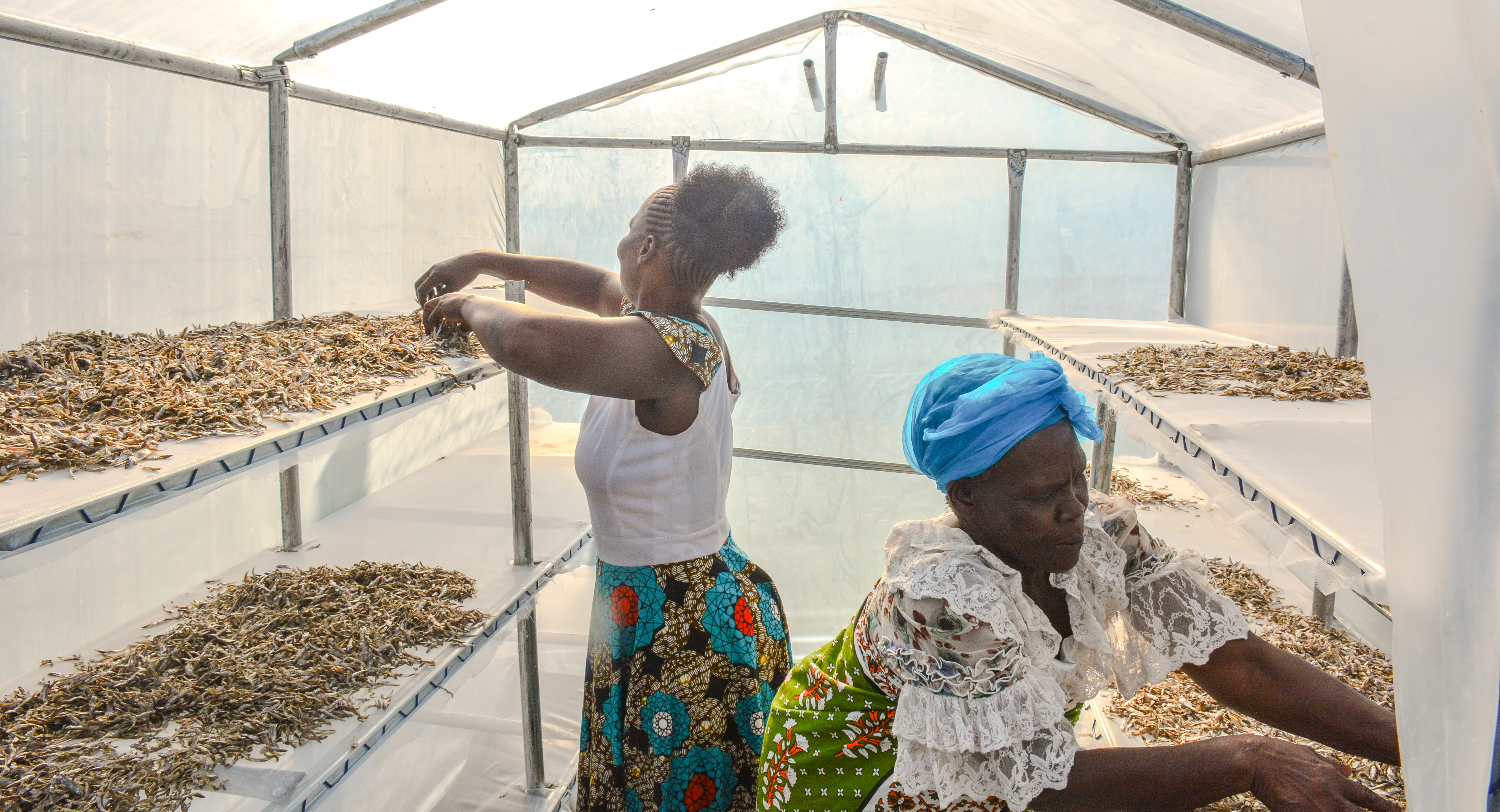The Challenge
Aquatic food systems nourish 3.3 billion people globally and provide livelihoods to 600 million, almost half of them women. 90% of small-scale fishers live in low-and middle-income countries.

Aquatic food systems are central to a global transition toward sustainable, equitable, and healthy food systems.
While essential for nutrition and livelihoods, these systems face complex challenges. Climate change and environmental degradation affect production while changing consumption patterns and increasing demand exacerbate inequalities.
As aquaculture rapidly expands to meet the growing demand for fish, it is vital to reduce its environmental footprint and ensure its benefits are equitably distributed. At the same time, small-scale fisheries face diminishing wild catch, impacted by climate change, over-exploited stocks and assault on the oceans.
At WorldFish, we are committed to realising the full potential of aquatic foods in nourishing people and unleashing economic opportunities for small-scale fishers, women, and youth – advancing multiple Sustainable Development Goals (SDGs) for countries.
Through our Sustainable Aquatic Food Systems research, we contribute to research-based evidence, technical and institutional capacity development, and production and policy innovations to enable the development of sustainable aquatic food systems.
A sustainable aquatic food system produces safe, nutritious, accessible, affordable, and culturally preferred food. It produces and distributes it through fair working practices that support livelihoods and communities. It is adapted to a changing climate and changing societal needs. It helps preserve and restore nature and biodiversity.
Our Approach
We employ inter- and transdisciplinary approaches to identify the systemic barriers to improving the environmental, social and economic performance of aquatic food systems to maximise their cross-cutting contributions to multiple sustainable development goals – poverty alleviation, access to nutrition, climate action, inclusivity and equity, gender equality, and conservation of natural resources and biodiversity.

We characterise and evaluate innovations for sustainable development. We draw on our aquatic food biosciences innovations to test delivery and scaling strategies developed from research and innovation in production systems, markets, governance, and policy. A significant focus of our research is strengthening policy, decision-making and action-taking with digital innovations, rigorously tested models, and validated data systems.
Our research creates a body of global knowledge and tangible outcomes, such as policy briefs, peer-reviewed papers, and digital tools. These inform and lead to an enabling environment for thriving aquatic food systems.
Production Systems
Our Production Systems research takes a systemic view of aquatic food production to understand the needs and opportunities in local and regional contexts. It provides evidence to support the development of sustainable fisheries, aquaculture, and integrated systems, such as rice fish, and to ensure environmental sustainability and climate resilience.
We collaborate with local actors to enhance productivity, nutritional value, and economic benefits to promote social equity and economic inclusion while reducing greenhouse gas emissions, halting and reversing biodiversity loss, and reducing other environmental impacts from the sector.
Data and Digital Innovations
Recognising the need of information systems to create knowledge, we support global databases like FishBase and develop platforms like AquaData to ensure information on aquatic food is readily available for food systems analysis.
Our digital tools, such as Peskas, empower stakeholders with information for optimized decision-making, designed to ensure equal access for low-income and marginalized groups and other small-scale actors in aquatic food supply chains.
Further, through tools such as Climate Information Services, we support countries in adapting their small-scale fisheries to climate change. These fisheries ensure equal access for low-income and marginalised groups and other small-scale actors in the fish value chain.
Governance and Policy
We provide critical analysis to ensure aquatic foods are considered in policy formulation and investment allocation and to provide the evidence base for establishing regulations and standards that promote responsible resource management and conservation to support livelihoods and nutritious food. Through scientific research and advice, we support governance reforms that enhance the sector’s contribution to national development goals and the SDGs.
Inclusive Market Systems
Our work in market systems focuses on sustainability, equity, and efficiency. We innovate and scale market practices that include women, youth and other marginalised groups to ensure aquatic foods are a viable livelihood option. We also seek to improve access to technologies that reduce loss and waste in aquatic food supply chains and provide financial resources for small-holders.

























